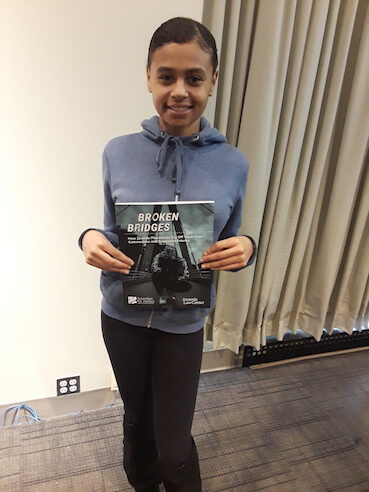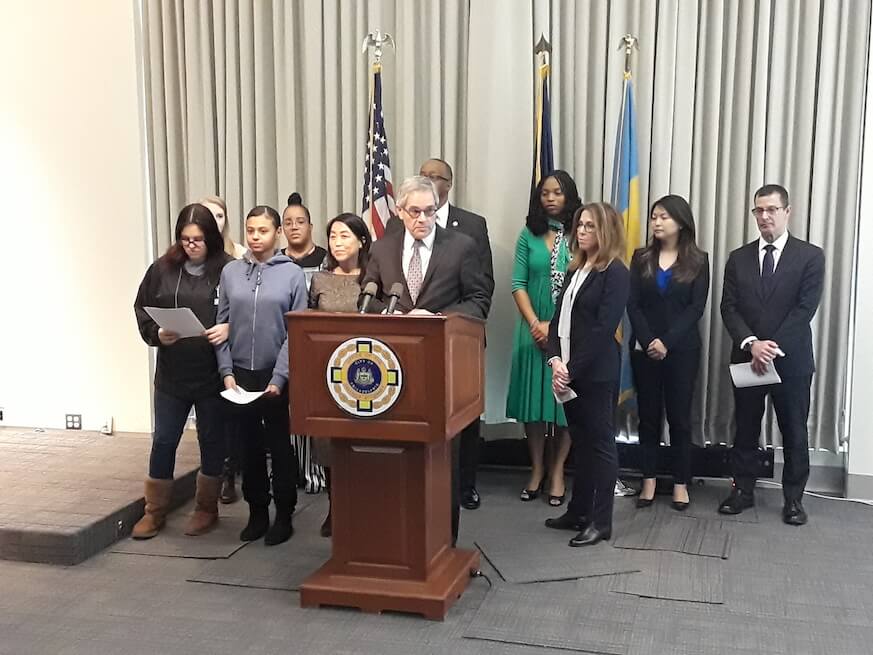“I’m sharing some really hard things that happened to me because I don’t want them to happen to other youth.”
Those are words from one of the youths whose experiences prompted District Attorney Larry Krasner to announce new legislation on Wednesday morning to reform and improve the juvenile justice system and how it affects youth and their families.
One of Krasner’s primary motivations in reforming the juvenile justice system is to help negate the school-to-prison pipeline. “In 2001 there were 10,000 criminal complaints in juvenile court,” Krasner said. “They are now down to 2,400, approximately a 75 percent reduction. That improvement has been going on for a long time since [former police officer and activist] Kevin Bethel recognized that what was going on was truly a school-to-prison pipeline.”
Beatriz “Lily” Jimenez is a 16-year-old high school sophomore and saw firsthand how traumatic the juvenile justice system can be. After she ran away from her home, her mother believed placement in a juvenile center would be a safe method of discipline. “When I entered the delinquent system I was only 13 years old,” Jimenez said. “ [My mom] thought I would be safe and didn’t realize that I would be abused, strip-searched, mistreated or unable to continue my education. I hope by sharing my story, parents and leaders will realize youth will be better off staying in their own homes.”

Beatriz “Lily” Jimenez is a youth advocate from juvenile justice reform. Image: Michael Butler
Juvenile justice reform
Jimenez’s negative experiences of dealing with physical abuse, neglect and other abuses led her to work as a youth advocate for the Juvenile Law Center, a nonprofit law firm that supports youth in child welfare and justice systems. “I first went into placement May 2016. I was in two different facilities for a total of seven months,” Jimenez said. “There was a lot of physical abuse happening in the Philadelphia facility where I was first placed. One time I refused to go the main room and a staff body-slammed me, then put me in a small room in a boy’s hall with just one staff member for almost a whole day. I ate breakfast, but from 9 a.m. to 3 p.m. I wasn’t allowed to eat anything else.”
With new federal laws making it illegal to place juveniles in the same facilities as adults, Krasner is steadfast in seeking to make Philadelphia a city that will lead the way for others nationally. “What we are seeing now is that we are no longer incarcerating youth as a first step,” Krasner said. “The purpose here is to address the needs of youth to keep the community safe. This is not an either/or or decision between the two. One feeds the other. You are dealing with a group of people, as the U.S. Supreme Court has said, more capable of rehabilitation and less culpable.”
Watch DA Krasner announce the new policies:
Read the Philly DA’s formal announcement of the new policies here. The new policies themselves can be viewed here.



























